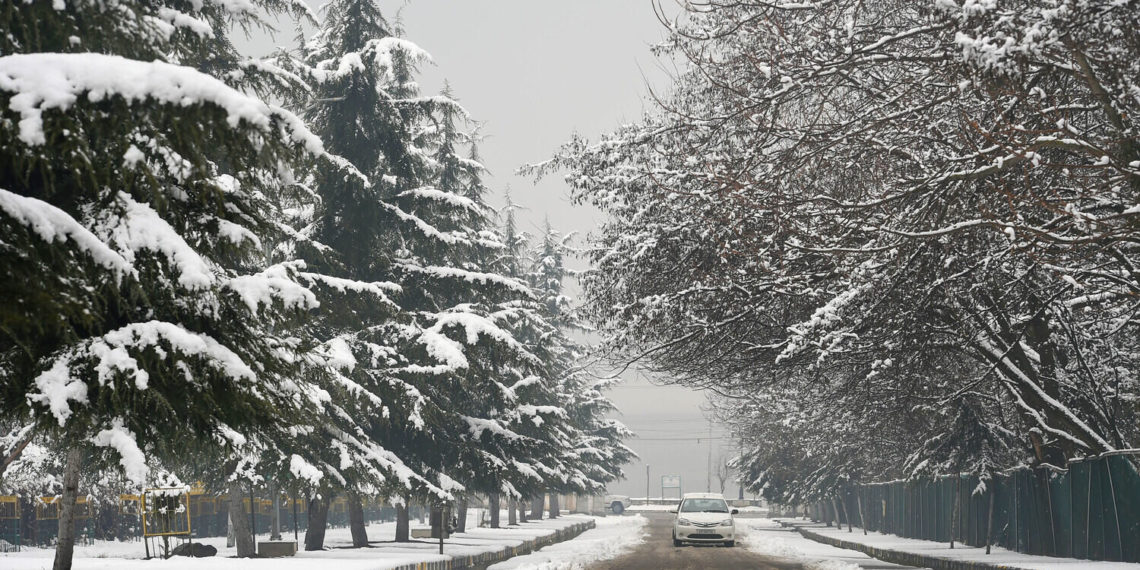As tourists arrive in the serene valleys of Kashmir to escape the smog and pollution of their bustling cities, they’re greeted with a breath of fresh air. In a world where cities like Delhi are grappling with dangerously high Air Quality Index levels, Kashmir stands as a rare, pristine escape. That being said, I fear for the future of my city. If we are not careful, we may one day face the same fate as the cities we now envy. Being a taxi driver, I meet tourists from across the world that come to Kashmir seeking solace and a chance to breathe untainted air. For them, our region is a paradise. As they drive through the winding roads, past the snow-capped mountains and lush green valleys, their faces light up with amazement. It’s not just the breathtaking beauty of Kashmir that draws them; it’s the fresh air, the clean environment, and the promise of a break from the harsh pollution that plagues their own cities. Take Delhi, for instance. Tourists often share with me their stories of arriving from the capital, where the air is thick with pollutants, and the sky is often hidden behind a gray blanket. The AQI there often crosses dangerous levels, leaving people with sore throats, headaches, and respiratory issues. They tell me how much they appreciate the pure, crisp air of Kashmir and the peace that comes with it. However, we can’t ignore the fact that the winds of change are coming. Just as cities like Delhi have witnessed alarming rises in pollution over the years, Kashmir too could face the same fate if immediate action is not taken. Urbanization, construction, and the rising number of vehicles are already showing signs of increasing pollution in Srinagar and other parts of the region. I’ve seen it firsthand. The once-clear waters of Dal Lake are becoming murkier, and I’m noticing traffic congestion on the roads. The government needs to recognize that tourism is our lifeline, and if we lose what makes Kashmir special—our fresh air and clean environment—our economy could take a serious hit.
It’s not just about preserving a way of life for us locals; it’s about preserving Kashmir as a global treasure for future generations. I worry that if we don’t act now, we might lose everything that makes Kashmir unique. The tourists who come here want to escape the polluted air of their own hometown.
They don’t come to breathe in smog and dust. To ensure that Kashmir stays the paradise it is, we need both the government and citizens to take responsibility. The rise in vehicles is one of the primary contributors to pollution in cities. We need the government to implement stricter emissions standards for both private and commercial vehicles & encourage public transport. It’s essential to encourage the use of electric vehicles, which are both environmentally friendly and cost-effective in the long run. We need to educate tourists on the importance of respecting the environment—disposing waste responsibly, minimizing plastic usage, and being conscious of their carbon footprint. Kashmir’s natural beauty lies in its vast forests, meadows, and lakes. But urbanization is spreading rapidly. If we’re not careful, our beautiful landscapes will be replaced by concrete jungles. The government should invest in creating green spaces in urban areas, building parks, and planting more trees. This will not only help reduce pollution but also improve the overall quality of life for residents. Improving waste management systems in towns and cities is crucial. Dumping waste into lakes and rivers harms both the environment and the local economy. The government should work on creating better infrastructure for waste disposal and recycling. Citizens, too, must play their part in reducing waste and promoting cleanliness. One way to reduce air pollution is by shifting to cleaner energy. Solar and wind power are abundant in Kashmir, and it makes sense for the region to tap into these renewable resources. By decreasing our reliance on fossil fuels, we can reduce emissions and combat pollution.
While the government must play a major role, citizens also have a responsibility to safeguard the environment. The real change will come when everyone in Kashmir—whether they’re business owners, residents, or visitors—takes responsibility for the environment. We can protect our paradise. It’s not too late, but the clock is ticking. Let’s not wait until we’re breathing the same polluted air as the cities we’ve come to admire. Kashmir deserves better, and we, the people of Kashmir, can make sure it stays the fresh, clean oasis that it is today. The future of Kashmir depends on the choices we make today. If we continue on the path of unchecked pollution and negligence, we risk turning our beautiful homeland into just another polluted city. But with concerted efforts from both the government and the citizens, we can protect the pristine air and stunning landscapes that make Kashmir a true haven for both locals and tourists alike. Let’s make sure that when tourists come to Kashmir in the years to come, they’ll still be able to take in a deep breath and marvel at the beauty that surrounds them.

